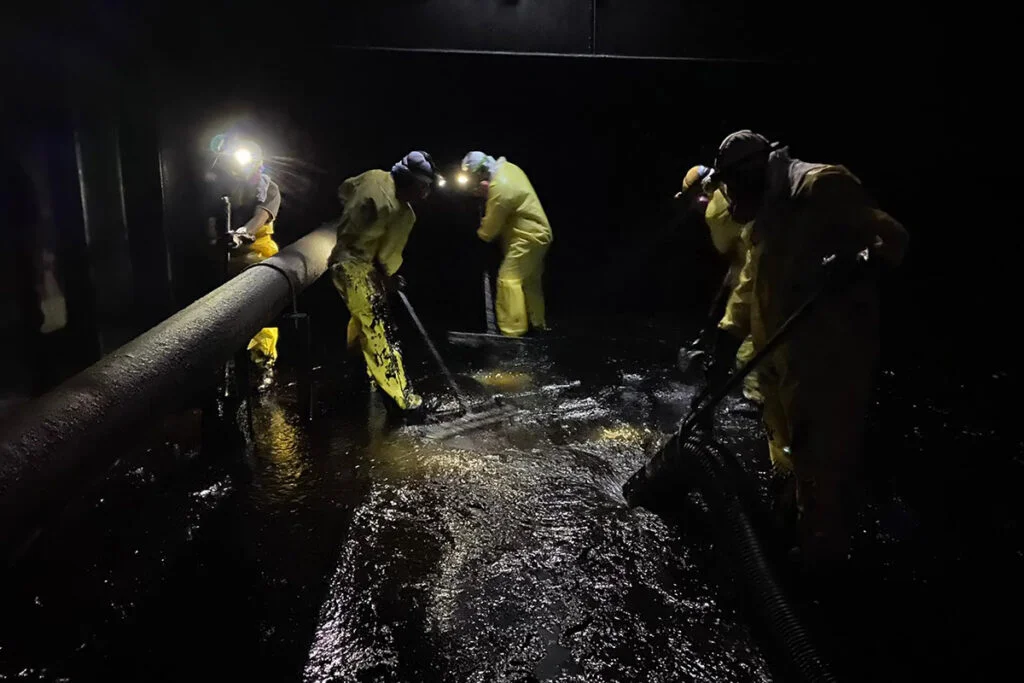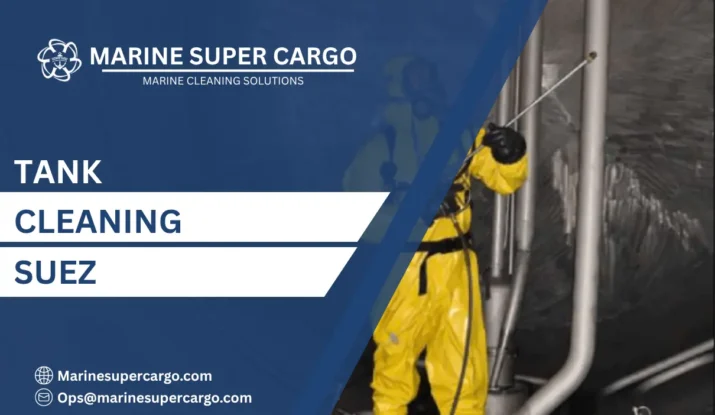Tank cleaning Suez operations require careful consideration of water temperature to achieve optimal results. Understanding the differences between hot and cold water tank cleaning Suez methods helps vessel operators make informed decisions. Marine Super Cargo provides both hot water and cold water tank cleaning Suez services tailored to specific cargo requirements.
Hot Water Tank Cleaning Advantages
Marine Super Cargo utilizes specialized heating equipment for hot water tank cleaning Suez services. The heated water penetrates residues from bow to stern, loosening stubborn deposits from bulkheads and tank bottoms. Hot water applications reduce cleaning time significantly compared to cold water methods.
The efficiency of hot water tank cleaning aligns with MARPOL Annex I requirements for crude oil washing and tank cleaning procedures. Vessels benefit from reduced cleaning cycles and improved residue removal rates. The process ensures thorough cleaning of areas along port and starboard sides.
Cold Water Tank Cleaning Benefits
Marine Super Cargo delivers professional cold water tank cleaning Suez solutions for vessels carrying temperature-sensitive cargoes. The process utilizes high-pressure jets that compensate for lower temperature through increased mechanical action. Cold water cleaning proves cost-effective when heating equipment is unavailable or unnecessary.
Cold water applications comply with MARPOL Annex II standards for chemical tanker operations. The method prevents unwanted chemical reactions that could occur with heated water. Our technicians assess cargo compatibility before recommending cold water tank cleaning approaches.

Comparative Analysis: Efficiency and Effectiveness
Hot water tank cleaning Suez operations typically complete faster than cold water methods for petroleum products. The thermal energy accelerates residue dissolution, reducing overall cleaning duration. However, cold water methods may prove equally effective for light petroleum products and certain chemicals.
IMO guidelines recognize both methods as acceptable when properly executed. Marine Super Cargo evaluates previous cargo type, next cargo requirements, and vessel-specific factors to recommend optimal cleaning methods. Our experience ensures efficient operations whether using hot or cold water approaches.
Regulatory Compliance Considerations
Both hot and cold water tank cleaning must meet MARPOL regulations for waste generation and disposal. Hot water operations may produce larger volumes of washings due to increased residue dissolution. Cold water methods generate less wastewater but may require multiple cleaning cycles.
Marine Super Cargo ensures compliant waste management regardless of cleaning method employed. We coordinate with approved reception facilities in Suez for proper disposal. Documentation meets IMO MEPC resolution requirements for pollution prevention.
Cargo-Specific Recommendations
Petroleum product carriers benefit significantly from hot water tank cleaning Suez services. The elevated temperature effectively removes waxy deposits and asphaltenes that resist cold water cleaning. Similar to our Butterworth tank cleaning services, hot water applications provide superior results for oil tankers.
Chemical tankers often require cold water tank cleaning to prevent cargo reactions. Certain chemicals polymerize or decompose when exposed to elevated temperatures. Our tank cleaning machine services accommodate both temperature requirements with appropriate equipment selection.
Making the Right Choice for Your Vessel
Selecting between hot and cold water tank cleaning Suez depends on multiple factors. Cargo history, next cargo requirements, time constraints, and cost considerations all influence the decision. Marine Super Cargo provides expert consultation to help vessel operators choose appropriate cleaning methods.
Our comprehensive tank cleaning services encompass both hot and cold water applications with professional execution. We maintain equipment for both methods, ensuring vessels receive optimal cleaning regardless of requirements. The strategic location in Suez enables efficient service delivery for vessels on tight schedules.
Conclusion
Understanding hot water versus cold water tank cleaning Suez options empowers vessel operators to make informed decisions. Marine Super Cargo delivers expert services using both methods, ensuring compliance with international regulations and achieving exceptional cleaning results. Contact us for professional tank cleaning Suez solutions tailored to your vessel’s specific requirements.
FAQs
Q1: When is hot water tank cleaning mandatory?
Hot water cleaning is typically required for crude oil tankers per MARPOL Annex I and for removing heavy petroleum residues that resist cold water cleaning methods effectively.
Q2: Can cold water cleaning achieve the same results as hot water?
For light petroleum products and most chemicals, cold water with high-pressure jets achieves comparable results. Heavy residues require hot water for optimal cleaning efficiency.
Q3: Does water temperature affect cleaning time?
Yes, hot water significantly reduces cleaning time for petroleum products by accelerating residue dissolution. Cold water methods may require extended cleaning cycles for equivalent results.
Q4: Are there safety differences between hot and cold water cleaning?
Hot water operations require additional thermal expansion precautions and steam safety measures. Both methods demand proper gas-freeing and ventilation before tank entry.
Q5: How does Marine Super Cargo determine which method to use?
We assess previous cargo type, next cargo requirements, tank condition, time constraints, and regulatory requirements to recommend the most effective and economical cleaning method.


